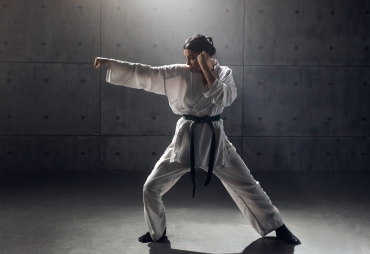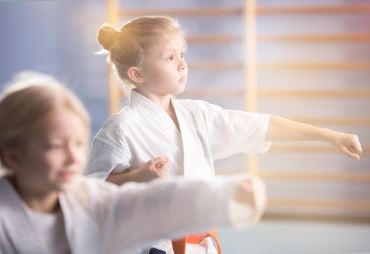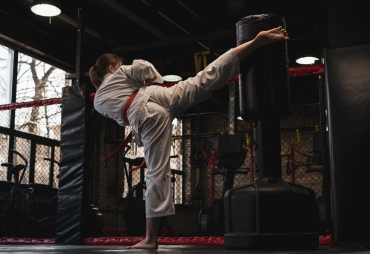CAN PRACTICING KARATE REDUCE SOCIAL ANXIETY?
If you had the chance to instil valuable life skills in your child through an enjoyable and health- promoting method, you'd likely seize the opportunity. Many parents are doing just that by enrolling their children in karate programs. While lessons in discipline and practice are apparent, martial arts imparts other subtle yet equally crucial skills to kids
Learning the dynamics of competition and cooperation early on is invaluable. Martial arts provides a platform for mastering both, making the dojo an ideal space for honing these life skills.
- Martial Arts and the Art of Healthy Competition In modern culture, competition has acquired a somewhat negative connotation. Despite being an inherent aspect of school, employment, and life, its teaching to children has seen fluctuations. The dojo stands as a unique space where karateka – the proper term for karate practitioners – learn the delicate balance between competition and cooperation
- The primary opponent for any martial artist, regardless of age, is themselves. This crucial lesson is ingrained in children at the dojo, where they understand the essence of competing against their own limitations. They learn the resilience to persist, even when tired, distracted, or tempted to quit.
- How Martial Arts Encourages Healthy Competition External aspects of competition also come into play in martial arts, notably in the context of the belt system and sparring or fighting. The belt system serves as a motivational hierarchy, offering clear goals and challenges for young martial artists. The pursuit of the next level and the honour associated with a new belt becomes a tangible representation of dedication.
- Sparring, though initially intimidating for some parents, is a structured and safe form of competition in martial arts. Tailored to age and skill levels, it serves as a powerful tool for young martial artists to embody the spirit of healthy competition.
- Martial Arts and the Harmony of Cooperation While competition is integral, so is cooperation in the dojo. The ability to compete effectively relies on a foundational understanding of how to cooperate with fellow martial artists and instructors.
Cooperation unfolds during practice sessions with other martial artists, especially when learning new techniques. Collaborative learning becomes evident in paired kata, comprising of throws and strikes, where having a reliable partner enhances the learning process. Cooperation extends to the relationship with instructors, requiring attentive listening and adherence to the pace set by the instructor
In the dojo, cooperation manifests in numerous small ways, such as maintaining a clean and organized space, working together to move equipment, and assisting younger students. These actions embody the spirit of cooperation cultivated in martial arts
Gaining Core Values through Martial Arts Competition and cooperation are not conflicting virtues; rather, they coexist harmoniously in martial arts. Kids absorb these values while engaging in healthy exercise and socializing. If you want to give your child a headstart in life through martial arts, Inferno Karate is ready to ensure your child has a fulfilling and enriching experience.









